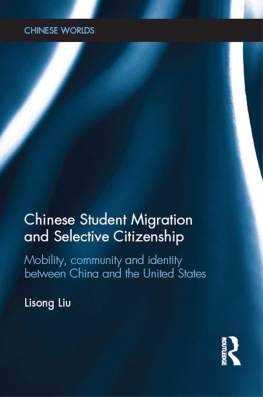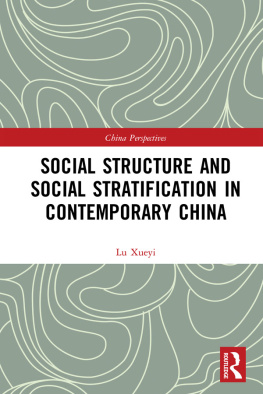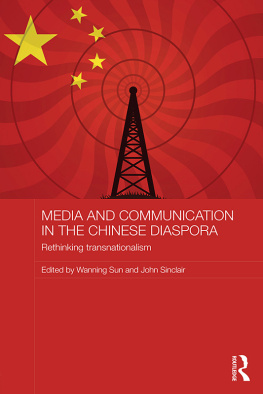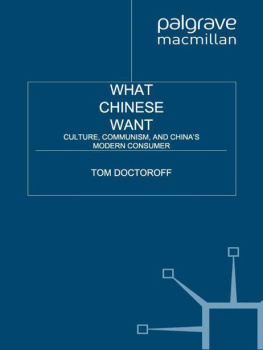
Petitions and Power
Using the way of storytelling, this book examines the petitions of the migrants of a dam in China. With the intensive and thorough analysis of the unique logic behind the petitions, it explores the complex relationship between Chinese peasants and governments, where people may find the key to the mysteries of Chinese society.
As the first academic monograph which systematically studies petition, the peculiar Chinese social phenomenon, this book describes the collective action of the rural migrants who had fallen into poverty due to the construction of a dam in Chinas Three Gorges area. By investigating the ups and downs of the petitions, it reveals the operating mechanism of Chinese counties, the conflicts between the officials and the masses, as well as Chinese political culture, especially the subtle process of the contest of powers. It observes that the peasants pursuit of justice not only temporarily maintains the balance of interests, but also reproduces the legitimacy of the party-state.
With substantial first-hand materials and empirical analyses, this book will be a valuable reference for scholars and students to study Chinese politics and society.
Xing Ying is a professor in the School of Sociology, China University of Political Science and Law. His research interests lie in historical sociology, political sociology, social movements, etc.
China Perspectives
The China Perspectives series focuses on translating and publishing works by leading Chinese scholars, writing about both global topics and China-related themes. It covers Humanities & Social Sciences, Education, Media and Psychology, as well as many interdisciplinary themes.
This is the first time any of these books have been published in English for international readers. The series aims to put forward a Chinese perspective, give insights into cutting-edge academic thinking in China, and inspire researchers globally.
Titles in sociology currently include:
Petitions and Power
A Story of the Migrants of a Dam in China
Xing Ying
The Living Conditions and Succor Mechanism of the Urban Underclass in China
Zhu Li, Mao Feifei
Contemporary Chinas Social Structure and Hierarchy
Lu Xueyi
Contemporary Chinas Social Construction and Development
Lu Xueyi
The Relationship between Social Capital and Trust in Urban China
Yuchun Zou
The Way to a Great Country
A Macroscopic View on Chinese Population in the 21st Century
Tian Xueyuan
For more information, please visit www.routledge.com/series/CPH
Petitions and Power
A Story of the Migrants of a Dam in China
Xing Ying
First published in English 2018
by Routledge
2 Park Square, Milton Park, Abingdon, Oxon OX14 4RN
and by Routledge
711 Third Avenue, New York, NY 10017
Routledge is an imprint of the Taylor & Francis Group, an informa business
2018 Xing Ying
The right of Xing Ying to be identified as author of this work has been asserted by him in accordance with sections 77 and 78 of the Copyright, Designs and Patents Act 1988.
All rights reserved. No part of this book may be reprinted or reproduced or utilised in any form or by any electronic, mechanical, or other means, now known or hereafter invented, including photocopying and recording, or in any information storage or retrieval system, without permission in writing from the publishers.
Trademark notice: Product or corporate names may be trademarks or registered trademarks, and are used only for identification and explanation without intent to infringe.
British Library Cataloguing-in-Publication Data
A catalogue record for this book is available from the British Library
Library of Congress Cataloging-in-Publication Data
A catalog record has been requested for this book
ISBN: 978-1-138-61328-7 (hbk)
ISBN: 978-0-429-46454-6 (ebk)
Typeset in Times New Roman
by Apex CoVantage, LLC
Contents
Part I
Introduction
Part II
Leftover problems
Part III
Bending the rules
Part IV
Comprehensive governance
Part V
Conclusion
Since the publication of A Story of the Migrants of the Dahe Dam (Chinese edition of this book) through the book series of SDX & Harvard-Yenching Academic Library in 2001, I have finished Morality and Politics of the History of Trails in the Villages in China (Beijing: Intellectual Property Publishing House, 2009) and Emotions and Contentious Politics in Contemporary Rural China (Beijing: Social Sciences Academic Press, 2011; English version: A Study of the Stability of Contemporary Rural Chinese Society, Springer, 2013) successively. Starting with a prehistory of the Dahe dams migrants, the former book narrated the political history of a core inhabited village of the Dahe dams migrants from 1951 to 1976. The latter compared the protest movements of the Dahe dams migrants, who became the resettlers in the Three Gorges Dam Project, with the peasants of three other regions, and showed the development of contentious politics in rural China since the 1990s. By reading my trilogy of Chinese rural politics, the readers might comprehend the entangled political relations in rural China during the collective and reform periods.
My favorite is A Story of the Migrants of the Dahe Dam among the three books. On the one hand, an explosive story happened in the Dahe dams migration area. All kinds of characters, intertwining contradictions, and entangling relations gathered on both sides of the Dahe riverbanks. For so many times when I groped through the jungle of files and recalling statements of the people concerned, I had a feeling of thrilling without the knife glittering and sword flashing. On the other hand, I tried to outgrow the traditional practice of editing the empirical materials with the theoretical concept of state-society, but to imbed the theories in a story presentation. Meanwhile, I tried to transcend the moral opposition between the unruly people and corrupt officials and put the opposing parties in the framework of social structure and social mechanisms and to understand their helplessness in such a social structure and their respective cunning and obstinate actions. In the fieldwork, sometimes I felt blood-burning indignation and sometimes blood-freezing disappointment. However, in my book I suppressed these strong emotions with calm statements in the spirit of Max Webers academic asceticism. Just like Baruch de Spinoza said, I took great pains not to laugh at human actions, or mourn them, or curse them, but only to understand them (Curley, 2016: 505).
For the publication of this English version, I have done a thorough revision according to the requirements of English readers. While keeping the major contents of the story, I have rearranged the book title, chapters, and headings, added an elaborate introduction, and reedited the narration and notes. I would like to extend my sincere gratitude to Daiqing, Li Heming, and Kelly Haggart, who organized the online translation of the Chinese edition on








